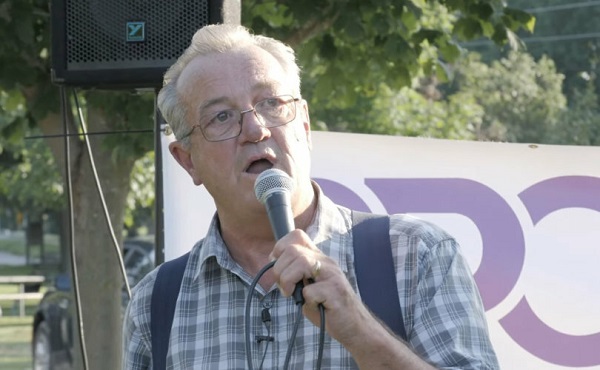Health
RFK Jr. says US rejects WHO with powerful message about sovereignty and the chronic disease crisis
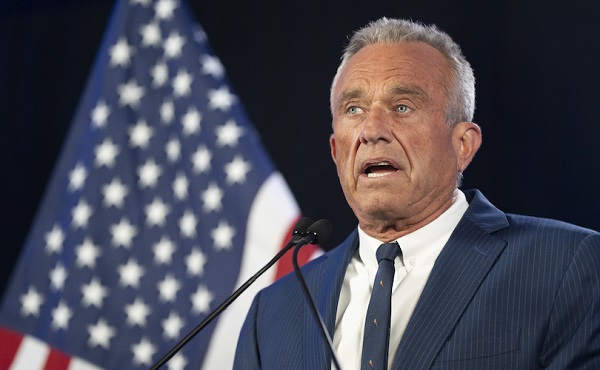
From LifeSiteNews
“This extraordinary statement — essentially declaring the entire UN process illegitimate — represents a watershed moment in international relations. A U.S. Cabinet Secretary stood before the world body and rejected not just specific provisions but the fundamental premise that the UN has authority to impose health mandates on sovereign nations,”
Health and Human Services Secretary Robert F. Kennedy Jr. told the United Nations that the United States won’t support World Health Organization (WHO) policies that promote abortion and radical gender ideology.
Kennedy delivered a powerful message about the global chronic disease crisis, defended U.S. national sovereignty, and exposed the U.N.’s guileful attempt to manufacture consensus.
Speaking at a U.N. meeting on preventing and combating chronic illnesses, Kennedy said that the U.S. would reject a proposed U.N. declaration because it has overstepped its role.
RFK Jr. just walked into the UN and SHREDDED its “oppressive” declaration on non-communicable disease.
“The WHO cannot claim credibility or leadership until it undergoes radical reform.”
“The declaration is filled with controversy.”
Kennedy slammed “provisions about everything… pic.twitter.com/Dmbsj9GmLJ
— Holden Culotta (@Holden_Culotta) September 25, 2025
“I call on the international community to come together to combat this scourge. We cannot defeat the epidemic alone, but the U.N. approach is misdirected. It attempts both too little and too much,” said Kennedy.
The declaration “exceeds the UN’s proper role while ignoring the most pressing health issues,” said Kennedy. “That’s why the U.S. will reject it.”
“We cannot accept language that pushes destructive gender ideology,” explained the Trump administration’s top health official. “Neither can we accept claims of a constitutional or international right to abortion.”
“The WHO cannot claim credibility or leadership until it undergoes radical reform,” said RFK Jr., who described the U.N. declaration as “political” in nature.
“The declaration is filled with controversy, with provisions about everything from taxes to oppressive management by international bodies of communicable diseases,” said RFK Jr. “The US will walk away from the declaration, but we will never walk away from the world or our commitment to end chronic disease.”
“Member States decided earlier this year that this meeting should approve a declaration in advance by consensus to ensure this gathering would not be marred by controversy. But the declaration is filled with controversy,” he said. “The draft declaration for us today should not have been included in today’s agenda.”
“This extraordinary statement — essentially declaring the entire UN process illegitimate — represents a watershed moment in international relations. A U.S. Cabinet Secretary stood before the world body and rejected not just specific provisions but the fundamental premise that the UN has authority to impose health mandates on sovereign nations,” observed Douglas Sayer Ji in his Substack.
“The implications extend far beyond health policy. Kennedy’s stand signals that America will no longer subordinate its Constitution, its democratic processes, or its citizens’ rights to unelected international bodies—regardless of the humanitarian language used to justify such subordination.”
In a separate video message released on social media, Kennedy was even more pointed in his remarks.
“A sound global policy must respect families, and cultures, and communities. It must be practical, cost effective, and locally driven,” explained Kennedy.
“More specifically, we cannot accept language that pushes radical gender ideology. We believe in the biological reality of sex. Women deserve dignity, safety, and women-only spaces,” he argued.
“We cannot accept claims of a constitutional or international right to abortion. As President Trump has said, ‘global bureaucrats have absolutely no business attacking the sovereignty of nations that wish to protect innocent life,’” said Kennedy.
“We also can’t cede authority to the World Health Organization,” declared Kennedy. “The WHO’s failure during COVID cost the world valuable time and countless lives. Until the WHO undergoes meaningful reform, it cannot claim credibility or leadership.
The United States objects to the United Nations Political Declaration on Non-Communicable Diseases.
We will walk away from the Declaration, but we will never walk away from the world—or our commitment to end chronic disease.
We stand ready to lead, to partner, and to innovate… pic.twitter.com/ZVu0bdO8pi
— Secretary Kennedy (@SecKennedy) September 25, 2025
COVID-19
Second Massive Population Study Finds COVID-19 “Vaccines” Increase Risk of 6 Major Cancers
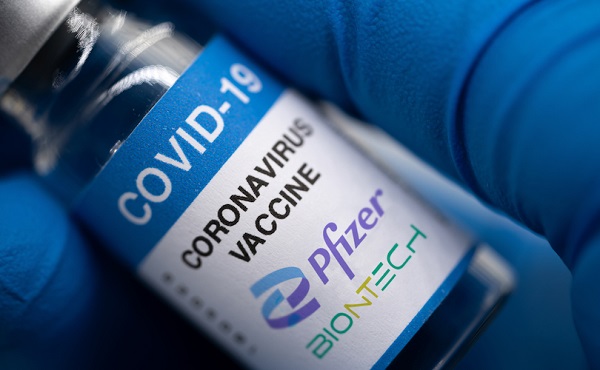
South Korea study of 8.4 million adults finds higher risks of overall, lung, prostate, thyroid, gastric, colorectal, and breast cancers — across both mRNA and viral-vector platforms.
About a month ago, the first-ever population cohort study reported increased cancer risks following COVID-19 vaccination. In Italy, nearly 300,000 residents were tracked for 30 months, showing that mRNA shots significantly increased the risk of overall cancer, breast cancer, bladder cancer, and colorectal cancer.
|
Now, a second—and far larger—population-based cohort study by Kim et al from South Korea has corroborated and expanded upon those findings. Drawing on a massive sample of more than 8.4 million people, this is one of the most powerful cancer-safety datasets ever analyzed.
The results are striking. After accounting for age, sex, comorbidities, income level, and prior COVID-19 infection, COVID-19 vaccination was linked to significant increases in multiple major cancers, with the signal consistent across all vaccine platforms, both sexes, and age groups:
Study Design at a Glance
- Design & data: Population-based retrospective cohort using the Korean National Health Insurance database (2021–2023).
- Population: 8,407,849 adults.
- Exposure: COVID-19 vaccination (analyzed overall and by platform: mRNA, cDNA, and heterologous schedules).
- Matching: Large-scale propensity score matching (1:4 vaccinated:unvaccinated for the main analysis; 1:2 within vaccinated for booster vs non-booster).
- Modeling: Multivariable Cox proportional hazards models (adjusted for age, sex, comorbidity index, income level, and prior COVID-19 infection), estimating hazard ratios (HRs) with 95% confidence intervals (CIs); analyses stratified by sex and age.
- Outcome window: 1-year incidence of overall and site-specific cancers post-vaccination.
Key Results — Cancers with Significant Increases (1-year follow-up)
- Overall cancer: HR 1.27 (95% CI, 1.21–1.33) → 27% higher risk of all cancers combined in vaccinated vs. unvaccinated at 1 year.
- Lung cancer: HR 1.53 (95% CI, 1.25–1.87) → 53% higher risk
- Prostate cancer: HR 1.69 (1.35–2.11) → 69% higher risk
- Thyroid cancer: HR 1.35 (1.21–1.51) → 35% higher risk
- Gastric (stomach) cancer: HR 1.34 (1.13–1.58) → 34% higher risk
- Colorectal cancer: HR 1.28 (1.12–1.47) → 28% higher risk
- Breast cancer: HR 1.20 (1.07–1.34) → 20% higher risk
Interpretation: An HR of 1.53 for lung cancer means that vaccinated individuals developed lung cancer at a rate 53% higher than matched unvaccinated peers, over the same one-year follow-up period. Similar interpretations apply to each cancer type.
By Vaccine Platform
- cDNA vaccines (AstraZeneca type): linked to higher risks of thyroid, gastric, colorectal, lung, and prostate cancers.
- Overall cancer HR 1.47 (95% CI 1.39–1.56) → 47% higher risk
- mRNA vaccines (Pfizer/Moderna): linked to higher risks of thyroid, colorectal, lung, and breast cancers.
- Overall cancer HR 1.20 (95% CI 1.14–1.26) → 20% higher risk
- Heterologous (mixed schedules): linked to higher risks of thyroid and breast cancers.
- Overall cancer HR 1.34 (95% CI 1.21–1.48) → 34% higher risk
Interpretation: The elevated cancer risks were not confined to one vaccine platform. Whether adenoviral-vector (cDNA), mRNA, or mixed schedules, each vaccine type was associated with a measurable increase in overall cancer — and each had specific cancer sites driving the signal. In other words, no vaccine technology was free of cancer risk in this dataset.
Booster-Dose Analysis
- Gastric cancer: HR 1.23 (p = 0.041) → 23% higher risk with boosters
- Pancreatic cancer: HR 2.25 (p < 0.001) → 125% higher risk with boosters
Interpretation: Booster doses were associated with notably higher risks of gastric and pancreatic cancers. For pancreatic cancer, the risk more than doubled in boosted individuals.
Overall Cancer Trends/Sex & Age Stratification
- Overall cancer: Incidence was higher in the vaccinated across every demographic group.
- Women showed the highest relative burden, with 48.4 per 10,000 vaccinated vs. 38.2 per 10,000 unvaccinated at one year.
- Elderly adults (≥75 years) carried the greatest absolute burden, at 119.9 per 10,000 vaccinated vs. 91.7 per 10,000 unvaccinated.
- Younger adults (<65 years) also experienced a clear overall increase, despite lower baseline rates.
- Site-specific patterns:
- Men: elevated risks for gastric and lung cancers
- Women: elevated risks for thyroid and colorectal cancers
- Under 65 years: stronger signals for thyroid and breast cancers
- ≥75 years: markedly higher risk of prostate cancer
Interpretation: Both the overall and site-specific results show a consistent pattern — every demographic group experienced elevated cancer risks, though the type and absolute burden varied. Women and the elderly were hit hardest, but no population segment was spared.
Taken together, the evidence is now impossible to ignore. The only two population-level cohort studies ever conducted on COVID-19 vaccination and cancer — one in Italy and one in South Korea — have both found major increases in cancer risk. The Italian study (≈300,000 people, 30-month follow-up) identified significant elevations in overall cancer, breast, bladder, and colorectal cancers. The South Korean study (8.4 million people, 1-year follow-up) confirmed and expanded these findings, documenting increased risks of overall cancer plus six site-specific cancers (lung, prostate, thyroid, gastric, colorectal, and breast).
Critically, the signal was observed across all vaccine types — both mRNA and viral-vector (cDNA) shots — and in every demographic group analyzed. In plain terms: both major COVID-19 vaccine platforms appear to be carcinogenic
With two independent national datasets converging on the same conclusion, governments, regulators, clinicians, and researchers must confront a sobering reality: nearly 70% of the global population has been injected with a carcinogenic product. The evidence demands immediate market withdrawal of these products.
At the McCullough Foundation, we are deeply investigating both the molecular mechanisms and the population-level data linking COVID-19 vaccination to cancer. We are currently preparing several new studies to expand this critical line of evidence. This work requires substantial time, expertise, and resources, and we ask for your support in funding this urgent research: mcculloughfnd.org/products/
Epidemiologist and Foundation Administrator, McCullough Foundation
Support our mission: mcculloughfnd.org
Please consider following both the McCullough Foundation and my personal account on X (formerly Twitter) for further content.
FOCAL POINTS (Courageous Discourse) is a reader-supported publication.
To receive new posts and support my work, consider becoming a free or paid subscriber.
Autism
Trump Blows Open Autism Debate
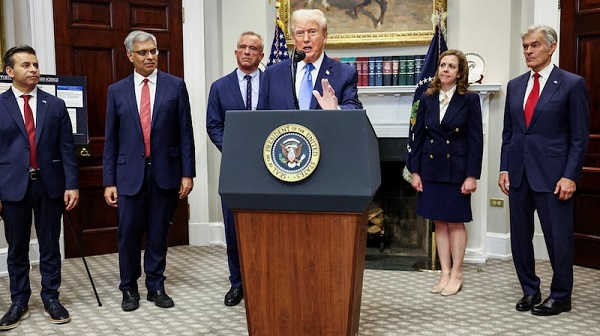
From the Brownstone Institute
By
Trump made sweeping claims that would have ended political careers in any other era. His health officials tried to narrow the edges, but the President ensured that the headlines would be his.
Autism has long been the untouchable subject in American politics. For decades, federal agencies tiptoed around it, steering research toward genetics while carefully avoiding controversial environmental or pharmaceutical questions.
That ended at the White House this week, when President Donald Trump tore through the taboo with a blunt and sometimes incendiary performance that left even his own health chiefs scrambling to keep pace.
Flanked by Health Secretary Robert F. Kennedy, Jr., NIH Director Jay Bhattacharya, FDA Commissioner Marty Makary, CMS Adminstrator Dr Mehmet Oz, and other senior officials, Trump declared autism a “horrible, horrible crisis” and recounted its rise in startling terms.
“Just a few decades ago, one in 10,000 children had autism…now it’s one in 31, but in some areas, it’s much worse than that, if you can believe it, one in 31 and…for boys, it’s one in 12 in California,” Trump said.
The President insisted the trend was “artificially induced,” adding: “You don’t go from one in 20,000 to one in 10,000 and then you go to 12, you know, there’s something artificial. They’re taking something.”
Trump’s Blunt Tylenol Warning
The headline moment came when Trump zeroed in on acetaminophen, the common painkiller sold as Tylenol — known as paracetamol in Australia.
While Kennedy and Makary described a cautious process of label changes and physician advisories, Trump dispensed with nuance.
“Don’t take Tylenol,” Trump said flatly. “Don’t take it unless it’s absolutely necessary…fight like hell not to take it.”
Kennedy laid out the evidence base, citing “clinical and laboratory studies that suggest a potential association between acetaminophen used during pregnancy and adverse neurodevelopmental outcomes, including later diagnosis for ADHD and autism.”
Makary reinforced the point with references to the Boston Birth Cohort, the Nurses’ Health Study, and a recent Harvard review, before adding: “To quote the dean of the Harvard School of Public Health, there is a causal relationship between prenatal acetaminophen use and neurodevelopmental disorders of ADHD and autism spectrum disorder. We cannot wait any longer.”
But where the officials spoke of “lowest effective dose” and “shortest possible duration,” Trump thundered over the top: “I just want to say it like it is, don’t take Tylenol. Don’t take it if you just can’t. I mean, it says, fight like hell not to take it.”
Vaccines Back on Center Stage
The President then pivoted to vaccines, reviving arguments that the medical establishment has long sought to bury. He blasted the practice of giving infants multiple injections at a single visit.
“They pump so much stuff into those beautiful little babies, it’s a disgrace…you get a vat of 80 different vaccines, I guess, 80 different blends, and they pump it in,” Trump said.
His solution was simple: “Go to the doctor four times instead of once, or five times instead of once…it can only help.”
On the measles, mumps, and rubella shot, Trump insisted: “The MMR, I think should be taken separately…when you mix them, there could be a problem. So there’s no downside in taking them separately.”
The moment was astonishing — echoing arguments that had once seen doctors like Andrew Wakefield excommunicated from medical circles.
It was the kind of line of questioning the establishment had spent decades trying to banish from mainstream debate.
Hep B Vaccine under Attack
Trump dismissed the rationale for giving the hepatitis B vaccine at birth.
“Hepatitis B is sexually transmitted. There’s no reason to give a baby that’s just born hepatitis B [vaccine]. So I would say, wait till the baby is 12 years old,” he said.
He made clear that he was “not a doctor,” stressing that he was simply offering his personal opinion. But the move could also be interpreted as Trump choosing to take the heat himself, to shield Kennedy’s HHS from what was sure to be an onslaught of criticism.
The timing was remarkable.
Only last week, the CDC’s Advisory Committee on Immunisation Practices (ACIP) had been preparing to vote on whether to delay the hepatitis B shot until “one month” of age — a modest proposal that mainstream outlets derided as “anti-vax extremism.”
By contrast, Trump told the nation to push the jab back 12 years. His sweeping denunciations made the supposedly radical ACIP vote look almost tame.
The irony was inescapable — the same media voices who had painted Kennedy’s reshaped ACIP as reckless now faced a President willing to say far more than the panel itself dared.
A New Treatment and Big Research Push
The administration also unveiled what it deemed a breakthrough: FDA recognition of prescription leucovorin, a folate-based therapy, as a treatment for some autistic children.
Makary explained: “It may also be due to an autoimmune reaction to a folate receptor on the brain not allowing that important vitamin to get into the brain cells…one study found that with kids with autism and chronic folate deficiency, two-thirds of kids with autism symptoms had improvement and some marked improvement.”
Dr Oz confirmed Medicaid and CHIP (the Children’s Health Insurance Program, which provides low-cost health coverage to children in families that earn too much to qualify for Medicaid) would cover the treatment.
“Over half of American children are covered by Medicaid and CHIP…upon this label change…state Medicaid programs will cover prescription leucovorin around the country, it’s yours,” said Oz.
Bhattacharya announced $50 million in new NIH grants under the “Autism Data Science Initiative.”
He explained that 13 projects would be funded using “exposomics” — the study of how environmental exposures like diet, chemicals, and infections interact with our biology — alongside advanced causal inference methods.
“For too long, it’s been taboo to ask some questions for fear the scientific work might reveal a politically incorrect answer,” Bhattacharya said. “Because of this restricted focus in scientific investigations, the answers for families have been similarly restricted.”
Mothers’ Voices
The press conference also featured raw testimony from parents.
Amanda, mother of a profoundly autistic five-year-old, told Trump: “Unless you’ve lived with profound autism, you have no idea…it’s a very hopeless feeling. It’s very isolating. Being a parent with a profound autistic child, even just taking them over to your friend’s house is something we just don’t do.”
Jackie, mother of 11-year-old Eddie, said: “I’ve been praying for this day for nine years, and I’m so thankful to God for bringing the administration into our lives…I never thought we would have an administration that was courageous enough to look into things that no prior administration had.”
Their stories underscored what Kennedy said at the announcement about “believing women.” Here were mothers speaking directly about their lived reality, demanding that uncomfortable conversations could no longer be avoided.
Clashes with the Press Corps
Reporters pressed Trump on the backlash from medical groups.
Asked about the American College of Obstetricians and Gynecologists (ACOG) declaring acetaminophen safe in pregnancy, Trump shot back, “That’s the establishment. They’re funded by lots of different groups. And you know what? Maybe they’re right. I don’t think they are, because I don’t think the facts bear it out at all.”
When one journalist raised the argument that rising diagnoses reflected better recognition, Kennedy bristled,
“That’s one of the canards that has been promoted by the industry for many years,” he said. “It’s just common sense, because you’re only seeing this in people who are under 50 years of age. If it were better recognition or diagnosis, you’d see it in the seventy-year-old men. I’ve never seen this happening in people my age.”
Another reporter then asked Trump, “Should the establishment media show at least some openness to trying to figure out what the causes are?”
“I wish they would. Yeah, why are they so close-minded?” Trump replied. “It’s not only the media, in all fairness, it’s some people, when you talk about vaccines, it’s crazy…I don’t care about being attacked.”
Breaking the Spell
For years, autism policy has been shaped by caution, consensus, and deference to orthodox positions. That spell was broken at today’s press conference.
The dynamic was striking. Kennedy, Makary, Bhattacharya, and Oz leaned on scientific papers, review processes, and cautious advisories. Trump, by contrast, brushed it all aside, hammering his message home through repetition and personal anecdotes.
Trump made sweeping claims that would have ended political careers in any other era. His health officials tried to narrow the edges, but the President ensured that the headlines would be his.
“This will be as important as any single thing I’ve done,” Trump declared. “We’re going to save a lot of children from a tough life, really tough life. We’re going to save a lot of parents from a tough life.”
Whatever the science ultimately shows, the politics of autism in America will never be the same.
Republished from the author’s Substack
-

 armed forces14 hours ago
armed forces14 hours agoSecretive Lockheed Martin Skunk Works reveals latest high-tech military drone
-

 International13 hours ago
International13 hours agoEverything has changed. Again.
-
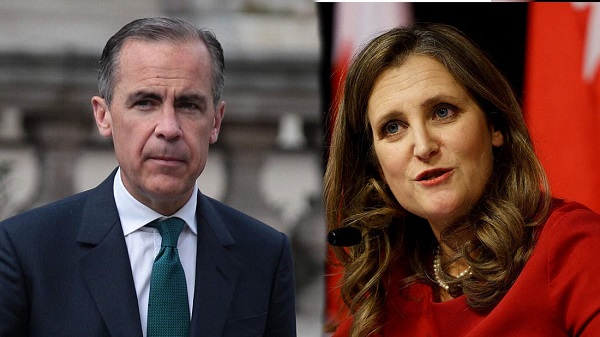
 Business2 days ago
Business2 days agoBC Ferries: Emails Change Everything- Committee to Haul In Freeland & Co.
-
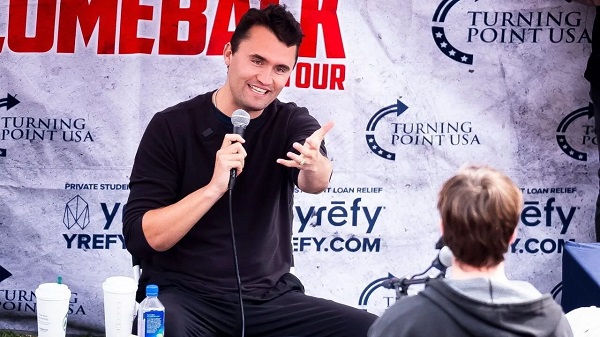
 Bruce Dowbiggin2 days ago
Bruce Dowbiggin2 days agoWhat We Had Here Is A Failure To Communicate
-

 Business2 days ago
Business2 days agoCritics Accuse YouTube of Dragging Out Return Process for Banned Channels
-

 Business1 day ago
Business1 day agoGun Buyback Program creating criminals out of law abiding citizens and directing police away from actual crime
-
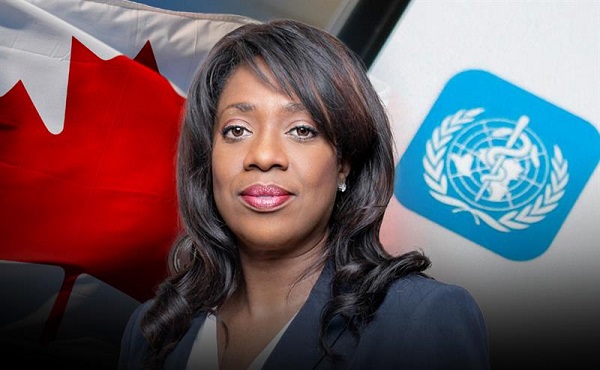
 Censorship Industrial Complex2 days ago
Censorship Industrial Complex2 days agoConservative MP Leslyn Lewis warns Liberals’ ‘hate’ bill will allow for prosecution of free speech
-
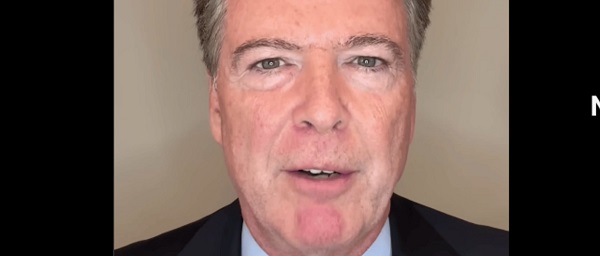
 Daily Caller2 days ago
Daily Caller2 days ago‘Let’s Have A Trial’: Comey Responds To Indictment












